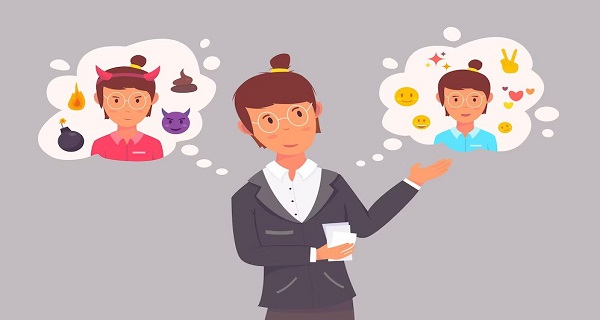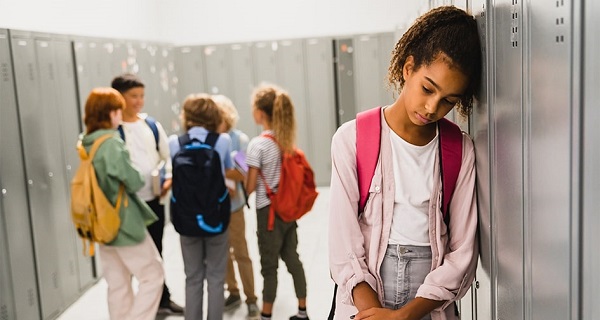The Danger of Ignorance: A Morality Story of Prejudice and Misunderstanding
-
Table of Contents
- Introduction
- The Impact of Ignorance on Prejudice: How Ignorance Can Lead to Misunderstanding and Discrimination
- The Role of Education in Combating Ignorance: How Education Can Help Us Overcome Prejudice and Misunderstanding
- The Power of Empathy: How Empathy Can Help Us Overcome Ignorance and Prejudice
- The Dangers of Stereotyping: How Stereotypes Can Lead to Ignorance and Prejudice
- The Need for Open-Mindedness: How Open-Mindedness Can Help Us Overcome Ignorance and Prejudice
- Conclusion
“Uncover the truth and break the cycle of ignorance: The Danger of Ignorance is real!”
Introduction
The Danger of Ignorance is a morality story about prejudice and misunderstanding. It is a cautionary tale about the consequences of ignorance and how it can lead to misunderstanding and even hatred. The story follows the lives of two families, one from a small town and one from a big city, and how their lives become intertwined due to a misunderstanding. Through this story, readers are reminded of the importance of understanding and acceptance, and the dangers of ignorance and prejudice.
The Impact of Ignorance on Prejudice: How Ignorance Can Lead to Misunderstanding and Discrimination
Ignorance can be a powerful force in our lives, and it can lead to misunderstanding and discrimination. When we don’t understand something, we can be quick to judge it, and this can lead to prejudice.
Ignorance can lead to a lack of understanding of different cultures, religions, and lifestyles. We may not understand why someone looks or acts differently than us, and this can lead to fear and mistrust. We may think that someone is dangerous or wrong because they are different, and this can lead to discrimination.
Ignorance can also lead to a lack of empathy. We may not understand why someone is struggling or why they have different beliefs than us. We may not be able to put ourselves in their shoes and understand their perspective. This can lead to us making assumptions about them and treating them unfairly.
Ignorance can also lead to a lack of education. We may not have the knowledge to understand why someone is different or why they have different beliefs than us. We may not have the resources to learn more about them, and this can lead to us making assumptions and treating them unfairly.
Ignorance can be a powerful force in our lives, and it can lead to misunderstanding and discrimination. We must strive to be more open-minded and understanding of those who are different than us. We must strive to learn more about different cultures, religions, and lifestyles. We must strive to be more empathetic and understanding of those who are struggling. We must strive to be more educated and informed about the world around us. Only then can we truly understand and accept those who are different than us.
The Role of Education in Combating Ignorance: How Education Can Help Us Overcome Prejudice and Misunderstanding

Education is a powerful tool that can help us overcome prejudice and misunderstanding. It can help us to understand the world around us and to recognize the value of different cultures, beliefs, and perspectives.
Education can help us to recognize our own biases and to challenge them. It can help us to understand the history of different cultures and to appreciate the diversity of our world. Education can also help us to recognize the importance of empathy and understanding. It can help us to recognize the value of different opinions and to be open to learning from others.
Education can also help us to recognize the power of language and how it can be used to spread misinformation and misunderstanding. It can help us to recognize the importance of facts and evidence and to be critical of the information we consume. Education can also help us to recognize the power of storytelling and how it can be used to create understanding and empathy.
Education can also help us to recognize the importance of dialogue and how it can be used to bridge divides and create understanding. It can help us to recognize the importance of listening and to be open to different perspectives. Education can also help us to recognize the power of collaboration and how it can be used to create positive change.
Education can help us to recognize the importance of respect and to be open to different opinions. It can help us to recognize the power of kindness and to be open to learning from others. Education can also help us to recognize the importance of inclusion and to be open to different cultures and beliefs.
Education can help us to recognize the power of knowledge and to be open to learning from others. It can help us to recognize the importance of understanding and to be open to different perspectives. Education can also help us to recognize the power of love and to be open to different cultures and beliefs.
Education can help us to recognize the power of hope and to be open to different perspectives. It can help us to recognize the importance of compassion and to be open to different cultures and beliefs. Education can also help us to recognize the power of unity and to be open to different opinions.
Education can help us to recognize the power of change and to be open to different perspectives. It can help us to recognize the importance of acceptance and to be open to different cultures and beliefs. Education can also help us to recognize the power of progress and to be open to different opinions.
Education can help us to recognize the power of knowledge and to be open to learning from others. It can help us to recognize the importance of understanding and to be open to different perspectives. Education can also help us to recognize the power of love and to be open to different cultures and beliefs. By understanding these concepts, we can work together to combat ignorance and create a more tolerant and understanding world.
The Power of Empathy: How Empathy Can Help Us Overcome Ignorance and Prejudice
Empathy is a powerful tool that can help us overcome ignorance and prejudice. It is the ability to understand and share the feelings of another person. It is the capacity to put ourselves in someone else’s shoes and to feel what they are feeling.
When we practice empathy, we can better understand the experiences of others and gain insight into their perspectives. We can learn to appreciate the differences between us and recognize that we all have something valuable to contribute. We can also recognize our own biases and prejudices and work to overcome them.
Empathy can help us to bridge the gap between different cultures, religions, and backgrounds. It can help us to recognize our common humanity and to build bridges of understanding and respect. It can help us to recognize our shared values and to work together to create a more just and equitable world.
Empathy can also help us to recognize our own privilege and to use it to help those who are less fortunate. We can use our privilege to advocate for those who are marginalized and to create a more inclusive and equitable society.
Empathy can help us to recognize our own ignorance and to learn from those who have different experiences and perspectives. We can use empathy to open our minds and hearts to new ideas and to challenge our own assumptions.
Empathy can help us to recognize our own prejudices and to work to overcome them. We can use empathy to recognize our own biases and to work to create a more inclusive and equitable society.
Empathy can help us to recognize our own privilege and to use it to help those who are less fortunate. We can use our privilege to advocate for those who are marginalized and to create a more just and equitable world.
Empathy can help us to recognize our own ignorance and to learn from those who have different experiences and perspectives. We can use empathy to open our minds and hearts to new ideas and to challenge our own assumptions.
Empathy can help us to overcome ignorance and prejudice and to create a more just and equitable world. It is a powerful tool that can help us to recognize our common humanity and to build bridges of understanding and respect.
The Dangers of Stereotyping: How Stereotypes Can Lead to Ignorance and Prejudice
We all know what it’s like to be judged by our appearance or our background. We’ve all experienced the feeling of being stereotyped. But what we may not realize is that stereotyping can have serious consequences.
Stereotyping is a form of prejudice that can lead to ignorance and discrimination. It’s a way of making assumptions about someone based on their race, gender, religion, or other characteristics. Stereotypes can be positive or negative, but they’re usually inaccurate and can be damaging.
When we stereotype someone, we’re making a judgment about them without knowing the facts. We’re assuming that all people who share a certain characteristic are the same. This can lead to a lack of understanding and respect for people who are different from us.
Stereotyping can also lead to prejudice. Prejudice is an attitude or opinion that’s formed without considering the facts. It’s based on stereotypes and can lead to discrimination. People who are discriminated against may be denied opportunities or treated unfairly.
Stereotyping can also lead to a lack of empathy. When we stereotype someone, we’re not taking the time to understand their experiences or perspectives. This can lead to a lack of compassion and understanding for people who are different from us.
Stereotyping can have serious consequences. It can lead to ignorance, prejudice, and discrimination. It can also lead to a lack of empathy and understanding for people who are different from us. The best way to combat stereotyping is to be aware of our own biases and to take the time to get to know people who are different from us. By doing this, we can create a more inclusive and understanding world.
The Need for Open-Mindedness: How Open-Mindedness Can Help Us Overcome Ignorance and Prejudice
We all have our own opinions and beliefs, and it can be difficult to open our minds to different perspectives. But open-mindedness is essential if we want to overcome ignorance and prejudice.
Open-mindedness allows us to be more accepting of others and their beliefs. It encourages us to look beyond our own biases and to consider different points of view. It helps us to be more tolerant and understanding of those who are different from us.
Open-mindedness also helps us to recognize our own ignorance and to learn from others. We can learn about different cultures, religions, and lifestyles, and gain a better understanding of the world around us. We can also learn to appreciate the diversity of our society and to recognize the value of different perspectives.
Open-mindedness also helps us to challenge our own beliefs and to question our assumptions. We can learn to think critically and to evaluate our own opinions. This can help us to become more informed and to make better decisions.
Finally, open-mindedness can help us to overcome prejudice. We can learn to recognize our own prejudices and to challenge them. We can learn to be more accepting of those who are different from us and to treat them with respect.
Open-mindedness is essential if we want to overcome ignorance and prejudice. It helps us to be more accepting of others, to learn from them, and to challenge our own beliefs. It can help us to become more informed and to make better decisions. And it can help us to be more tolerant and understanding of those who are different from us.
Conclusion
The Danger of Ignorance: A Morality Story of Prejudice and Misunderstanding is a powerful reminder of the consequences of ignorance and prejudice. It is a cautionary tale that shows how quickly misunderstandings can lead to tragedy. It is a reminder that we must strive to be open-minded and understanding of others, and to never take for granted the power of knowledge and understanding. Ignorance can be dangerous, and it is our responsibility to ensure that we are informed and educated about the world around us.
Related
Related Posts
-
 The Power of Love: A Morality Story of Sacrifice and Commitment
No Comments | Feb 25, 2023
The Power of Love: A Morality Story of Sacrifice and Commitment
No Comments | Feb 25, 2023 -
 The Beauty of Compassion: A Morality Story of Kindness and Understanding
No Comments | Feb 25, 2023
The Beauty of Compassion: A Morality Story of Kindness and Understanding
No Comments | Feb 25, 2023 -
 The Consequences of Arrogance: A Morality Story of Humiliation and Isolation
No Comments | Feb 25, 2023
The Consequences of Arrogance: A Morality Story of Humiliation and Isolation
No Comments | Feb 25, 2023 -
 The Virtue of Humility: A Morality Story of Modesty and Gratitude
No Comments | Feb 25, 2023
The Virtue of Humility: A Morality Story of Modesty and Gratitude
No Comments | Feb 25, 2023
